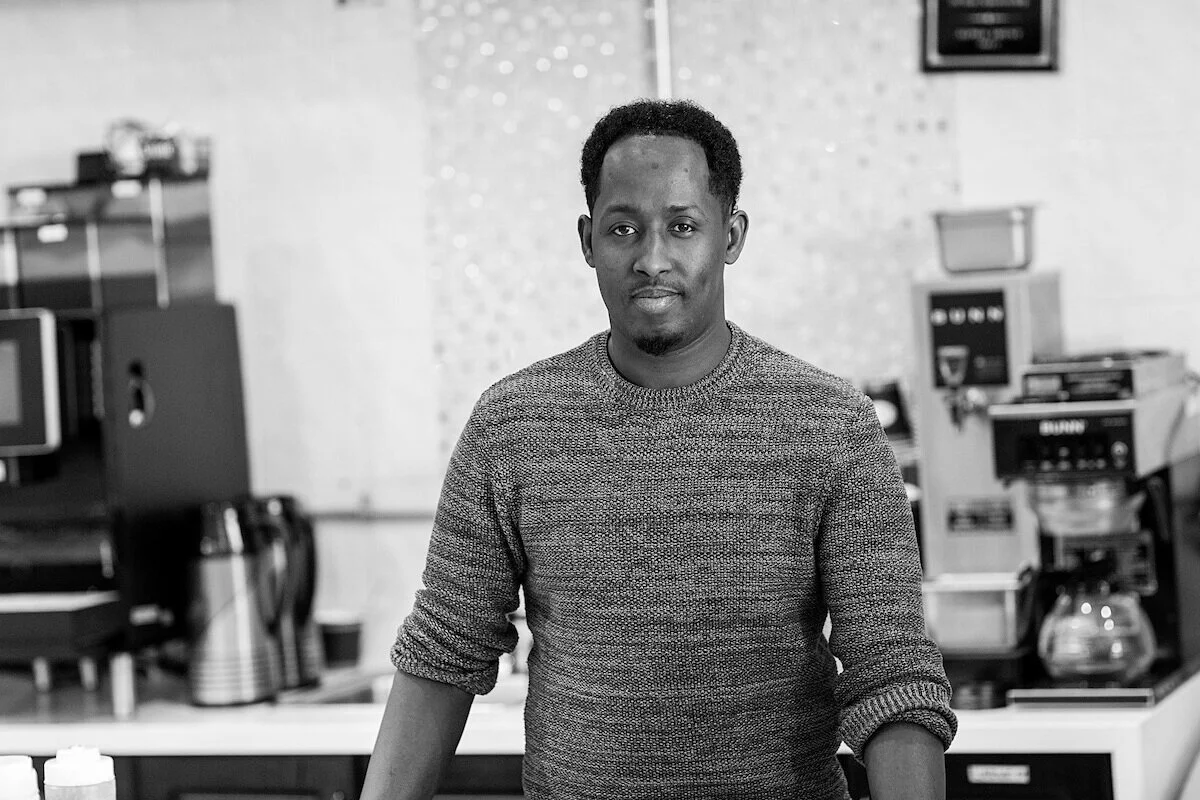ISTAR IS BORN
FROM MAY 2018 ISSUE OF WEST END PHOENIX
Mahamed Aden Elmi has expanded Istar Restaurant, which his mother opened in 1999, into a de facto civic centre, a place where his community not only eats but celebrates, organizes and makes itself at home
Two years ago, I embarked on a requisite unpaid undergraduate internship in New York. Despite staying in Bedford-Stuyvesant, once a predominantly Black and brown neighbourhood—and now less so as the community grapples with peak gentrification—I experienced a deep-rooted loneliness I couldn’t shake. I blame it on the placebo effect of being in a city where loneliness often feels like a mandatory part of the package. My strongest memory of my time there was formed at a Caribbean takeout counter, when the familiar din of a carnival parlance and southern West Indian patois left me with an overwhelming feeling of familiarity.
Walking into Istar, the nearly 20-year-old Somali restaurant located in Etobicoke at the corner of Islington and Dixon, reminded me of that moment. There’s something distinct about the question “Where are you from?” when it’s asked between Black folks in ethnic enclaves. Among people of colour, it’s less a gesture of decorum (or the inability to contain an insatiable curiosity), but more like a mapping exercise, a way of connecting the dots between an individual experience and a collective one.
Coming from Mahamed Aden Elmi, the new owner of Istar, it felt like an exhale that opened up the opportunity to connect, to compare sacred maps of cultural differences. I tell him that both of my parents are from Grenada, and he asks about the food of the island before diving into the history of the restaurant.
Istar was opened by Elmi’s mother, Istarlin Ali Mohamed, in 1999. She pulled the name of the restaurant from her own and was determined to create a business that belonged to her community. When Elmi arrived in Toronto from Holland for the first time in 2001, he was 18, and remembers the initial shock of walking into Istar. “It was mind-blowing. I came from a community where you rarely saw Somali people in one place and [I came] to a spot where you have 40 to 60 people sitting in the same area.” Elmi worked alongside his mother, and in 2012, when she moved back to Somalia to begin a new business venture (she now provides catering to airports), he took over the restaurant.
“I had a different vision,” he says. “Before, it was me and my mother, and we were a team, so we had to come to the same understanding. Now that I’m on my own, I can do more things the way I desire.” First, he extended the restaurant’s round-the-clock summer hours into every season, in order to accommodate the unpredictable schedules of taxi drivers, airport workers and young people coming home from the clubs and shisha bars. “I also had to change the decor,” he explains. “My mother still had that ‘oldfeel’initandIcannotstandthat,” he laughs. “I had to get something that looked more modern and welcoming.”
The Istar of today is flushed with light and Elmi has increased programming at the restaurant’s adjacent venue space, which accommodates everything from wedding rehearsal dinners to community events, like a youth job fair put on by the city and festivities for Somali Independence Day. With Elmi at the helm, Istar has become an unofficial civic centre, a place where the mechanisms of community building can flourish in a city where physical space is at an all-time premium. “Finding a Somali person who lives in Toronto and does not know Istar is very rare,” he says.
In most restaurants, you can’t quite feel totally at home—public spaces don’t often afford that luxury. At Istar, customers reach over booths to talk to the person behind them, children select and set themselves up at tables, unselfconscious about doing adult-like things, and individual patrons look at ease eating their hilib ari and beef suqqar alone, eyes fixed on a silent soccer game. “I have a lot of clientele that come in two or three times a day, minimum,” says Elmi. “It’s because they feel at home and that’s why I’m always working on it. I want them to feel comfortable and laugh before they go away.”

